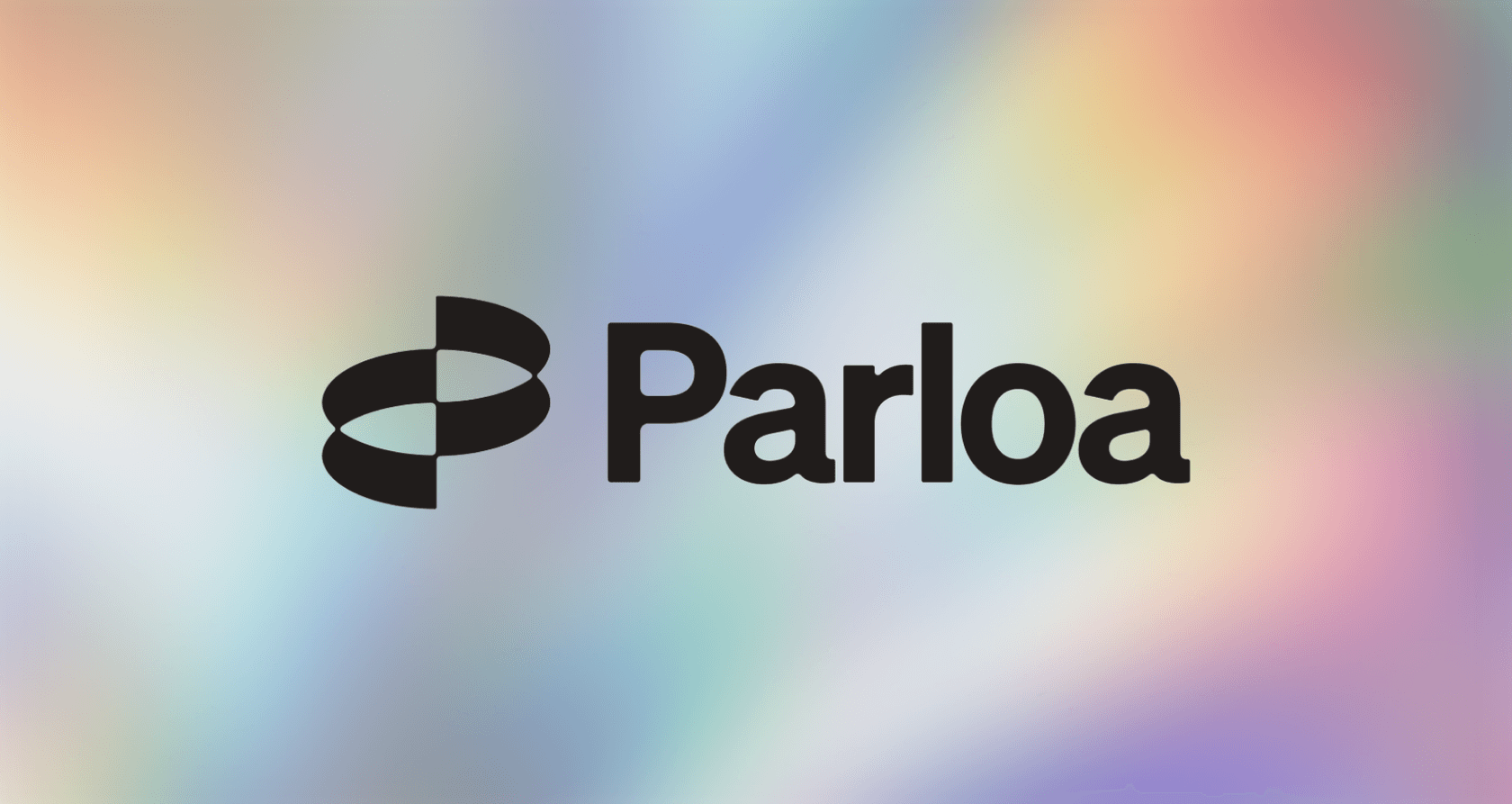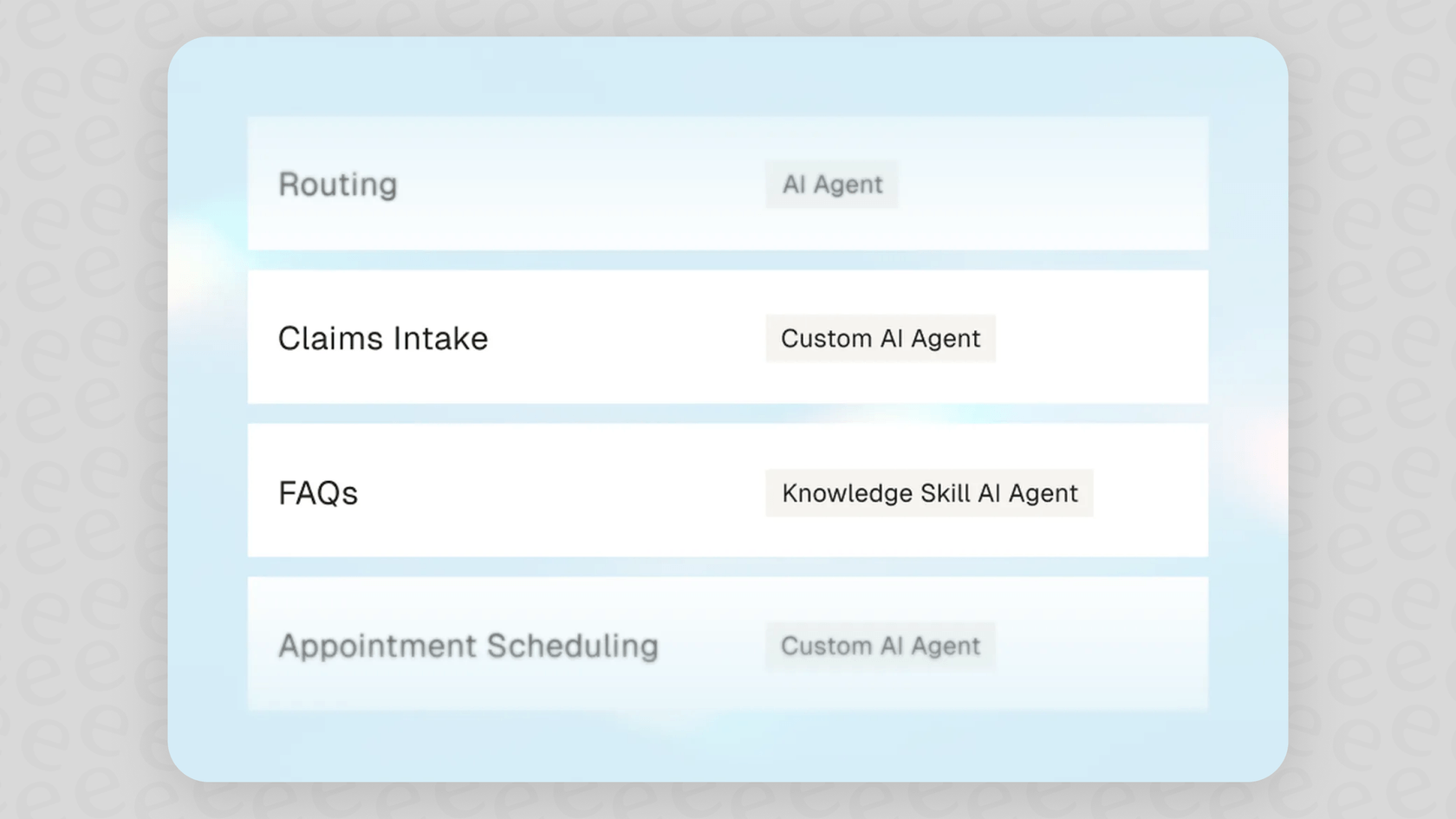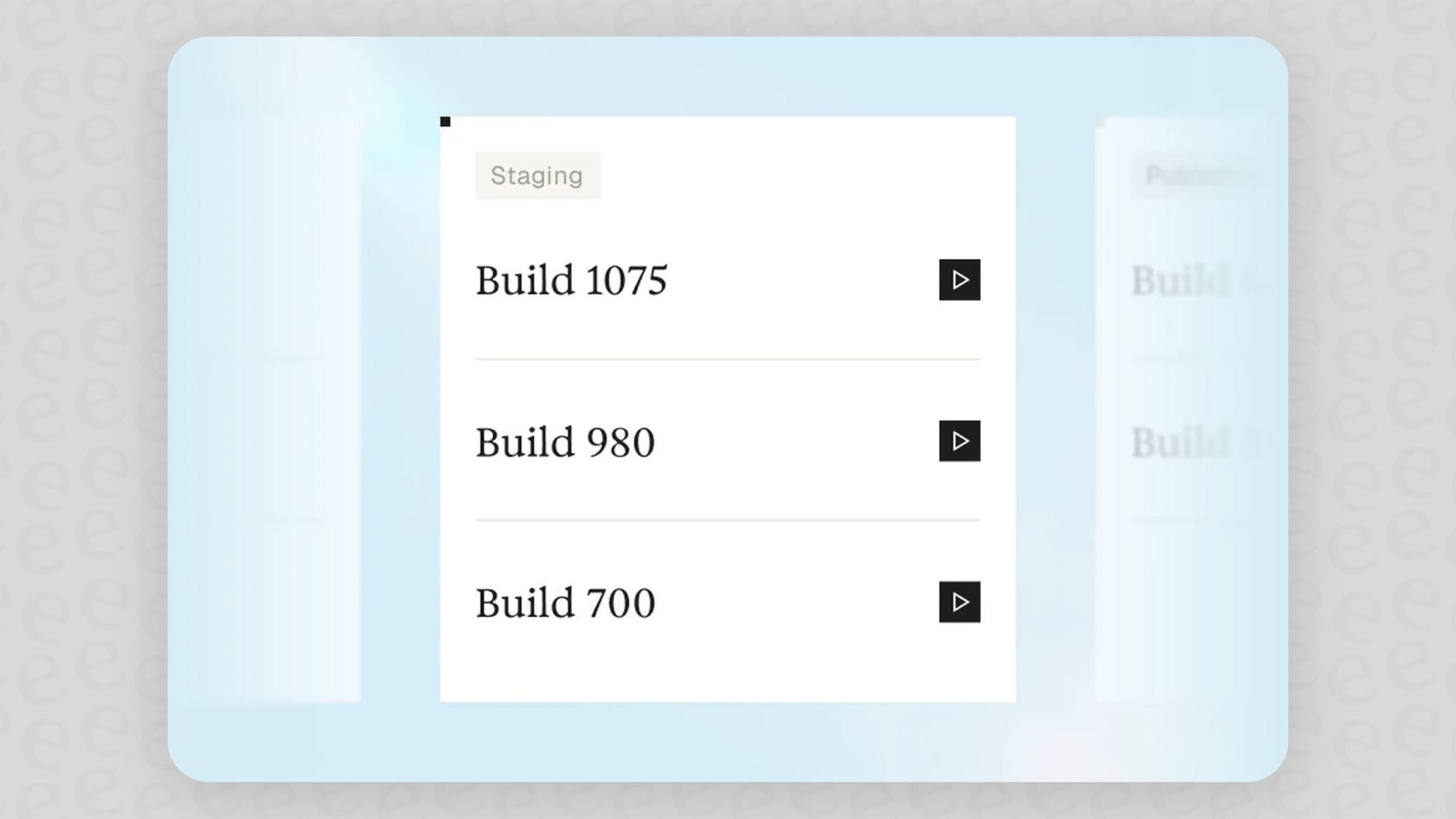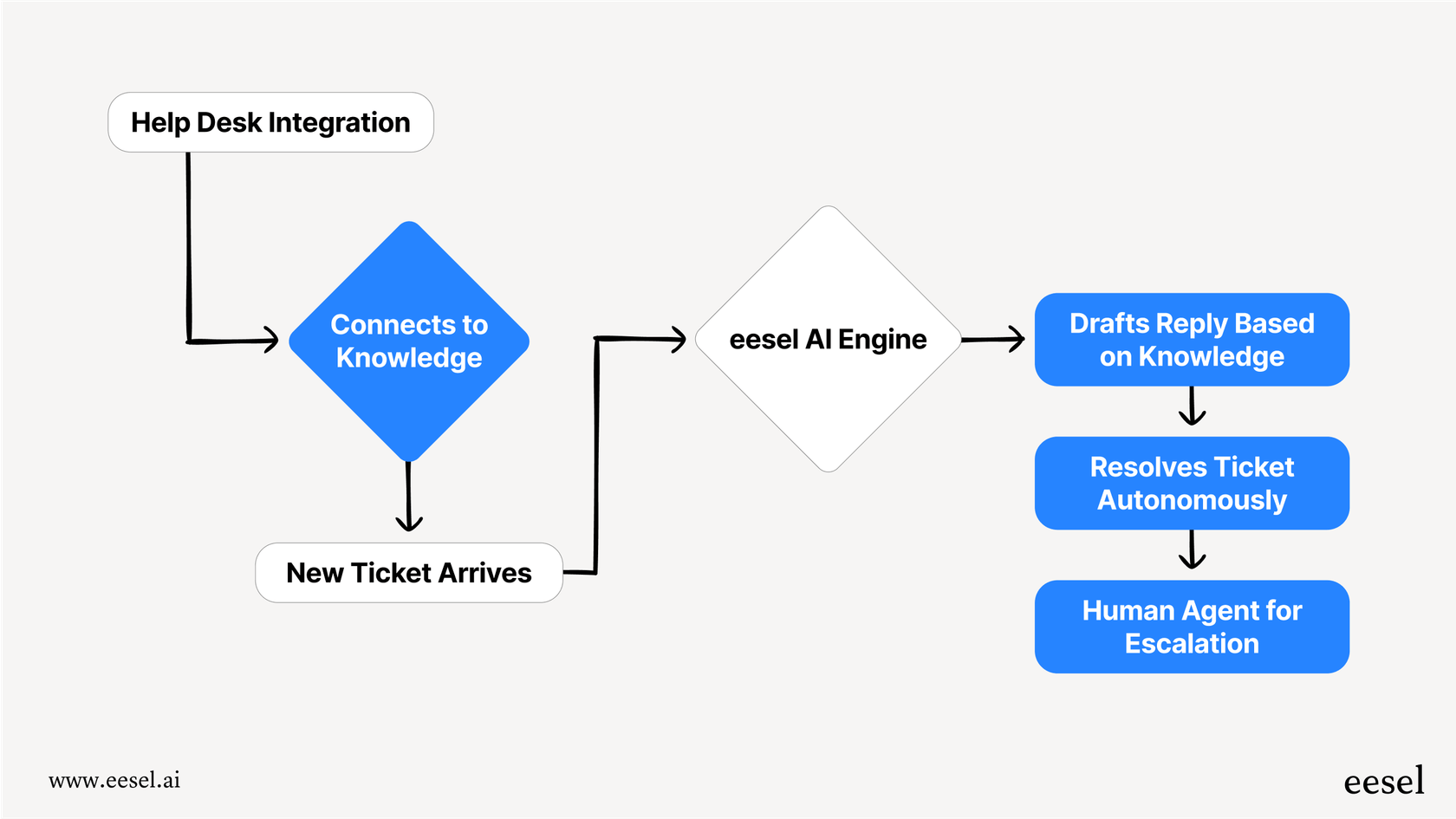
Picking an AI partner for your contact center feels like a big deal, because, well, it is. You're getting flooded with promises about transforming your business, but the reality can be a slow, complicated, and painfully expensive setup. Parloa is a big name in this game, offering an AI agent platform that’s supposed to help large companies ditch their old, clunky Interactive Voice Response (IVR) systems.
But is it all it's cracked up to be?
This review is a straight-up, detailed look at Parloa’s platform. We’ll walk through its main features, try to make sense of its pricing model (or the lack of one), and talk about what it’s actually like to use. By the time you’re done reading, you’ll have a much better idea if Parloa is the right move for your team.
What is Parloa?
At its core, Parloa is an AI platform built for large companies to create and manage customer service agents. Its whole purpose is to handle tons of customer calls and chats, swapping out those rigid, scripted chatbots and infuriating phone menus for conversations that feel a bit more natural.

The platform is really designed for big B2C brands, especially in industries like insurance, retail, and travel. We’re talking about companies that have the budget and people to handle a major tech project, which, as you’ll see, is pretty much what you’re signing up for with Parloa.
Key features and capabilities
Let's get into the nitty-gritty of what Parloa offers to see where it really delivers and where you might hit a few snags.
AI agent management and lifecycle
Parloa gives you a low-code visual builder to map out conversation flows and decide what your AI agent should do. They frame this around an "AI Agent Lifecycle," which is just a fancy way of talking about the design, testing, scaling, and tweaking stages.

Here’s the thing, though. Despite the "low-code" label, feedback from users suggests that building anything more than a basic workflow means you’ll need to get into scripting and have a developer look over your shoulder. This can create a bottleneck, slowing down how fast your customer experience team can actually make improvements or launch new ideas. It’s that all-too-common scenario where a tool meant to help your support team just becomes another ticket in the engineering queue.
For teams who need to move a lot faster, a platform like eesel AI offers a truly do-it-yourself experience where CX managers can set up, test, and launch AI agents without having to write any code at all.

Omnichannel and voice specialization
Parloa’s main claim to fame is its focus on voice. The whole platform was built with phone calls in mind, which makes it a strong option for companies wanting to automate phone support. It also handles other channels like chat, WhatsApp, and Microsoft Teams, so you can keep all your conversations in one spot.
But even in its own backyard, it’s not perfect. Competitors have pointed out that the response delay can be between 700-900ms. That might not seem like a lot, but in a real chat, that awkward pause can make the whole interaction feel stiff and unnatural. The platform also doesn't have features like voice cloning, which feels like a missed trick for brands that want to keep their unique voice consistent everywhere.
Enterprise integrations and security
As you’d hope for a tool aimed at big companies, Parloa connects with major CRM and CCaaS platforms like Salesforce, Microsoft, and Genesys. It also has the standard security and compliance badges like SOC 2, GDPR, and HIPAA, which is usually enough for most large organizations.
But there are a couple of holes. A deep dive by Synthflow.ai notes that Parloa is missing ISO 27001 certification and doesn’t offer on-premise hosting. For global companies or those in strict industries like finance, these aren't just minor details; they can be complete deal-breakers when it’s time to sign on the dotted line.
Parloa pricing
Alright, this is where it gets a little murky. Parloa doesn’t publish its pricing. If you want numbers, you have to talk to their sales team and get a custom quote. There's no way to try it out, run a test, or even get a rough idea of the cost without getting on a sales call.
Based on that same third-party review, it looks like most Parloa projects start at a minimum of $300,000 a year. And that’s just to get in the door. You’ll also have to account for extra costs for their professional services, custom setup, and any ongoing fees for integrations.
This hidden, high-cost approach has some pretty big consequences:
-
No free trial. You can’t test the platform with your own data to see if it’ll actually solve your problems. You have to take their word for it based on a demo.
-
Long sales process. Getting a custom quote is slow and just doesn’t work for nimble teams that need to get things done.
-
A huge barrier to entry. The price tag puts it way out of reach for small and medium-sized businesses, and even for some enterprise teams who just want to run a small pilot project.
This kind of model is a real pain for businesses today that just want some transparency. In contrast, platforms like eesel AI have a clear and flexible model that lets you start small and grow when you're ready.

| Feature | Parloa | eesel AI |
|---|---|---|
| Pricing Model | Custom / Quote-Based | Transparent, Tiered Plans |
| Public Pricing | No | Yes, clearly listed on the website |
| Starting Budget | $300k+ / year (estimated) | Starts at $239/mo (billed annually) |
| Free Trial | No | Yes, start instantly |
| Billing Flexibility | Usually annual contracts | Monthly and annual options |
| Per-Resolution Fees | Unclear, probably in the custom plan | No, plans are based on interactions |
The Parloa experience: Implementation and usability
A tool is only as good as how easy it is to set up and use every day. This is another spot where Parloa’s focus on large enterprises can be a headache for more agile teams.
Onboarding and getting started
From what we've seen in reviews, a typical Parloa setup takes between one and three months. It’s a very hands-on process, with their professional services team guiding you through agent design and helping with integrations.
For some companies, that kind of hand-holding might sound great. But for teams that need to show results fast, a three-month setup is a long time to wait. Business needs can shift in that time, and the pressure to deliver doesn't go away.
For businesses that can't sit around for months, eesel AI has a completely different philosophy. With one-click helpdesk integrations, you can connect your tools and have a working AI agent in a few minutes, not months.
Testing and launching with confidence
Parloa has a simulation tool that lets you test your conversation flows before you set them live. It’s a must-have feature, but it has some quirks. Reviews mention the simulation is pretty linear, which makes it tough to test different conversation paths or complex "what-if" scenarios all at once. This can leave you feeling a little nervous before you let the agent talk to actual customers.
A confident launch needs better testing. eesel AI includes a powerful simulation mode that lets you test your AI on thousands of your real, historical tickets. This gives you a solid prediction of how well it will perform and even points out gaps in your knowledge base before the agent has its first real conversation.

The verdict: A powerful but demanding platform
Parloa is a solid choice for its very specific audience: massive, established companies with big budgets, plenty of IT folks, and a clear goal to replace their old phone systems. If that sounds like you, and you’re ready for a long, expensive project, it could be a real contender.
However, it is definitely not the right tool for:
-
Teams that need to build, test, and make changes on the fly.
-
Companies that want clear pricing and flexible plans without long-term commitments.
-
CX and support leaders who want to be in the driver's seat of their own tools, without needing a developer for every little thing.
An alternative to Parloa
If Parloa's limitations, like the slow rollout, mystery pricing, and reliance on developers, sound like deal-breakers, you’re not the only one. Today’s support teams need tools that are quick, flexible, and put them in charge.
This is where eesel AI comes into the picture. It’s built from the ground up for teams that care about speed, control, and knowing what they’re paying for. Here’s what makes it different:
-
Go live in minutes: Connect your helpdesk (like Zendesk or Freshdesk) and knowledge bases with one-click integrations. No sales calls, no required demos, and no waiting around.
-
You're in control: Our platform is all about being self-serve. It gives non-technical users the power to build, manage, and improve their AI agents without writing a single line of code.
-
Risk-free simulation: Test your AI on your own historical data to see how it will perform and get real forecasts before you launch.
-
Transparent pricing: We have clear, flexible plans that can grow with you. You won’t get hit with a surprise bill, and you can start on a monthly plan you can cancel anytime.

| Attribute | Parloa | eesel AI |
|---|---|---|
| Deployment Time | 1, 3 months | Minutes |
| Best For | Enterprise IVR replacement | Agile, modern support teams |
| Pricing Model | Opaque, custom quote | Transparent, tiered plans |
| Self-Serve | Limited, needs dev help | Radically self-serve |
| Testing | Linear simulation | Simulation on historical tickets |
This video introduces Parloa's AI Agent Management Platform, which is the focus of this Parloa review.
Choose the right tool for your team
While Parloa is a capable platform for big enterprises, its rigid structure, high price, and slow setup make it a poor fit for many teams. The right AI partner should speed up your operations, not become another complicated project that holds you back.
If you’re looking for a powerful AI solution that you can set up yourself in minutes, try eesel AI for free and see just how quickly you can start automating your support.
Frequently asked questions
Most third-party analyses suggest Parloa projects start at a minimum of $300,000 per year, excluding professional services. Pricing is opaque because Parloa uses a custom quote model, requiring direct engagement with their sales team for any cost information.
Parloa is best suited for massive, established companies with large budgets and dedicated IT teams looking to replace legacy IVR systems. It's designed for enterprises in industries like insurance, retail, and travel that can commit to a long, expensive project.
A typical Parloa setup takes between one and three months. This process is very hands-on, requiring guidance from their professional services team for agent design and integrations.
While Parloa offers a low-code visual builder, user feedback suggests that anything beyond basic workflows often requires scripting and developer oversight. This can create bottlenecks, making it less self-serve for CX managers.
Parloa's primary strength is its strong focus on voice automation, making it a robust option for companies aiming to automate phone support. It also offers omnichannel capabilities, handling chat, WhatsApp, and Microsoft Teams.
No, Parloa does not offer a free trial, nor can you test the platform with your own data without a sales engagement. You rely on demos and custom quotes, leading to a lengthy sales process.
Yes, Parloa has standard security and compliance badges like SOC 2, GDPR, and HIPAA. However, some reviews note it's missing ISO 27001 certification and doesn't offer on-premise hosting, which can be deal-breakers for some global or highly regulated industries.
Share this post

Article by
Stevia Putri
Stevia Putri is a marketing generalist at eesel AI, where she helps turn powerful AI tools into stories that resonate. She’s driven by curiosity, clarity, and the human side of technology.







